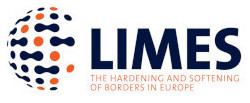This vacancy is now closed.
Cluster 2: Mobility of commodities and information
The softening and hardening of borders poses several fundamental challenges for the future of work and for individuals in organizations. Top amongst those are shifts in demographics in the workplace towards more diversity (e.g., in terms of age, culture, and nationality), as well as an increase of digitalisation of the workplace. On the one hand, one might expect that these developments lead to more connectivity and more socialisation amongst teams and organizational members. For example, people from different generations, cultures, or nationalities could share their experiences and thereby discover a new common ground that increases group cohesion and identification. Moreover, new digital ways of communicating and working might future facilitate this, because, for example, they can increase the ease by which people interact. Yet, on the other hand, these current developments might lead to more disconnection and isolation at work if individuals would retreat into their own demographic bubbles and thus ‘put up borders’ between them and their co-workers from different backgrounds. This might be even more so when digital tools lead to shallower, more depersonalized, interactions, as this might hinder gaining a deeper understanding of the others. Gaining more insight into when – and how – workers are successfully socialized at work is important as this increases individual and team performance, as well as individual well-being. Avoiding isolation is important as it has been associated with lower health and well-being. Yet although there are various (anecdotal) reports that isolation is on the rise in (parts of) society, there has only been limited research on this topic in workplace settings. This is surprising as many adults spend about a third of their time at work, making work potentially an important predictor of isolation.
This PhD project will research the above topic in-depth by drawing on the literatures on socialisation/isolation and connecting that to research on the future of work (e.g., recent developments in the diversity and/or teamwork literature). Data will be collected via a minimum of three quantitative studies, which will form the three core empirical chapters of the thesis. Together the three studies of the PhD project will shed more light onto the highly topical question if – and how – the softening of borders and the increase of digital technology will affect the future of work and lead to more, or less, socialisation or isolation amongst employees.
The researcher will be based at The Organization, Strategy & Entrepreneurship Department of The School of Business and Economics of Maastricht University (The Netherlands), and undertake a secondment at the University of Konstanz (Germany).
Supervision team:
Promotor: Prof. dr. Simon B. de Jong, Professor in Organizational Behaviour and HRM, School of Business and Economics, Maastricht University
Co-supervisor: Dr. Julia Kensbock, Assistant Professor, School of Business and Economics, Maastricht University
External supervisor: Prof. dr. Florian Kunze, Chair for Organisational Studies, Department for Politics and Public Administration, University of Konstanz
Any inquiries about the position or the project may be addressed to the supervisor.
